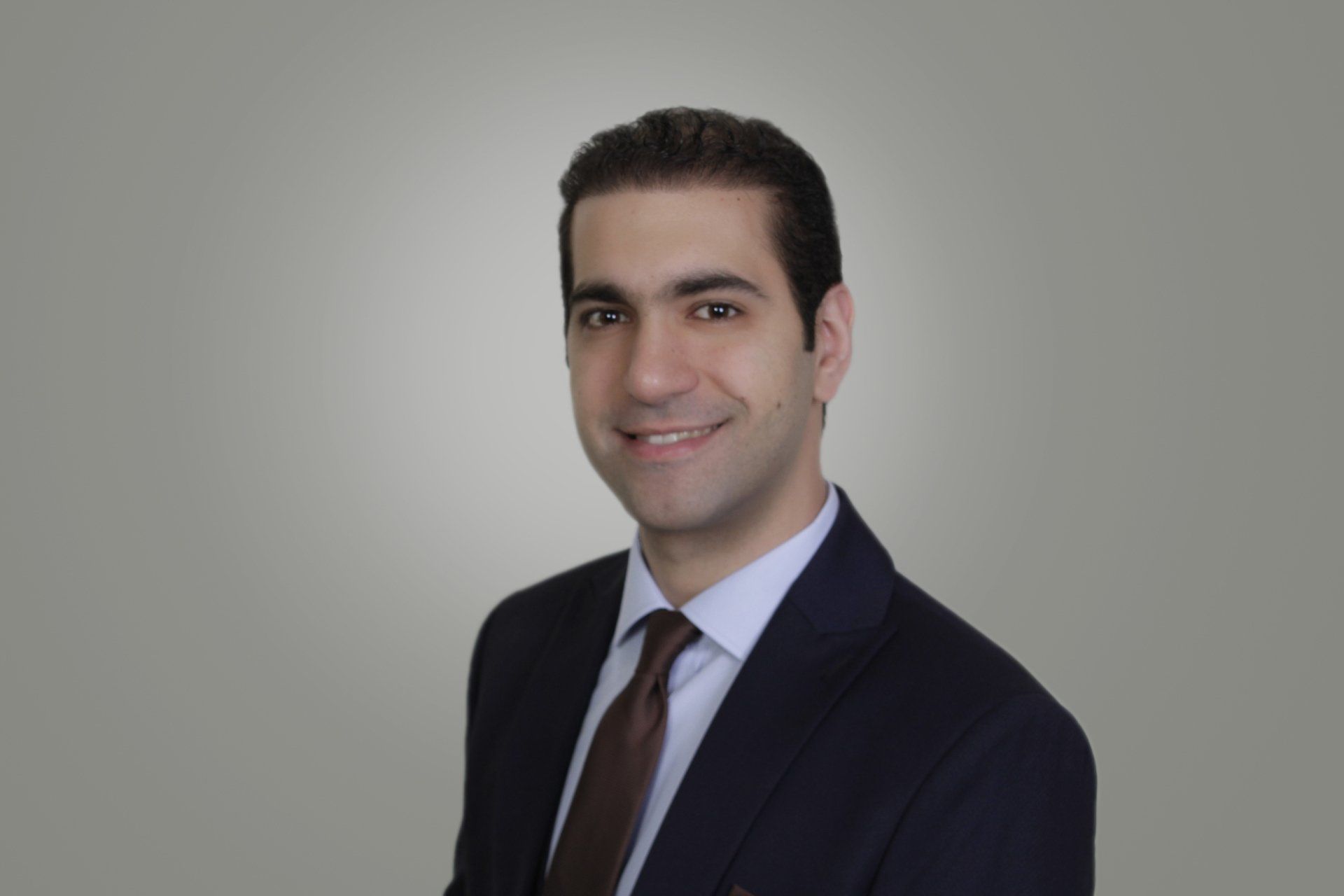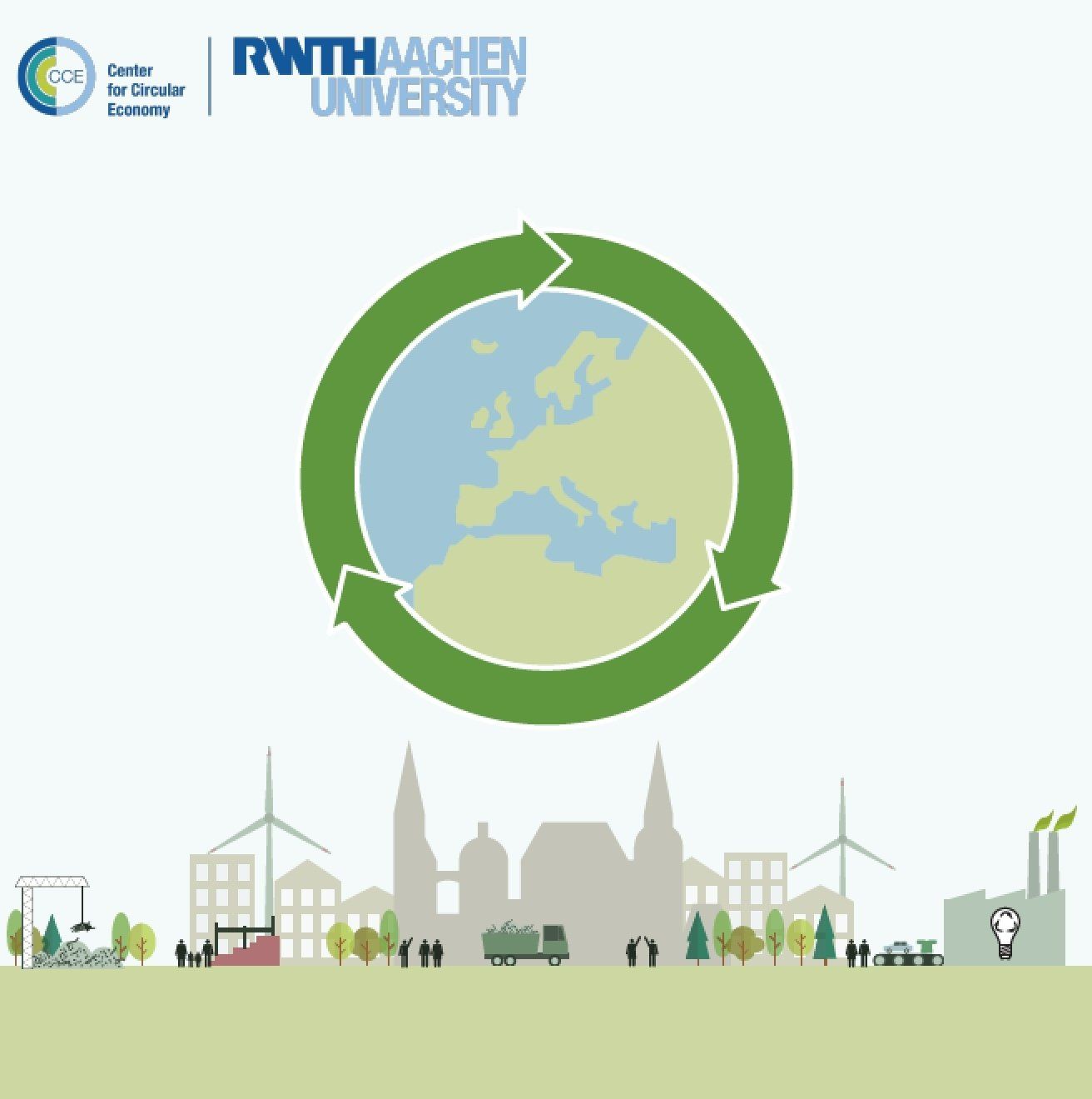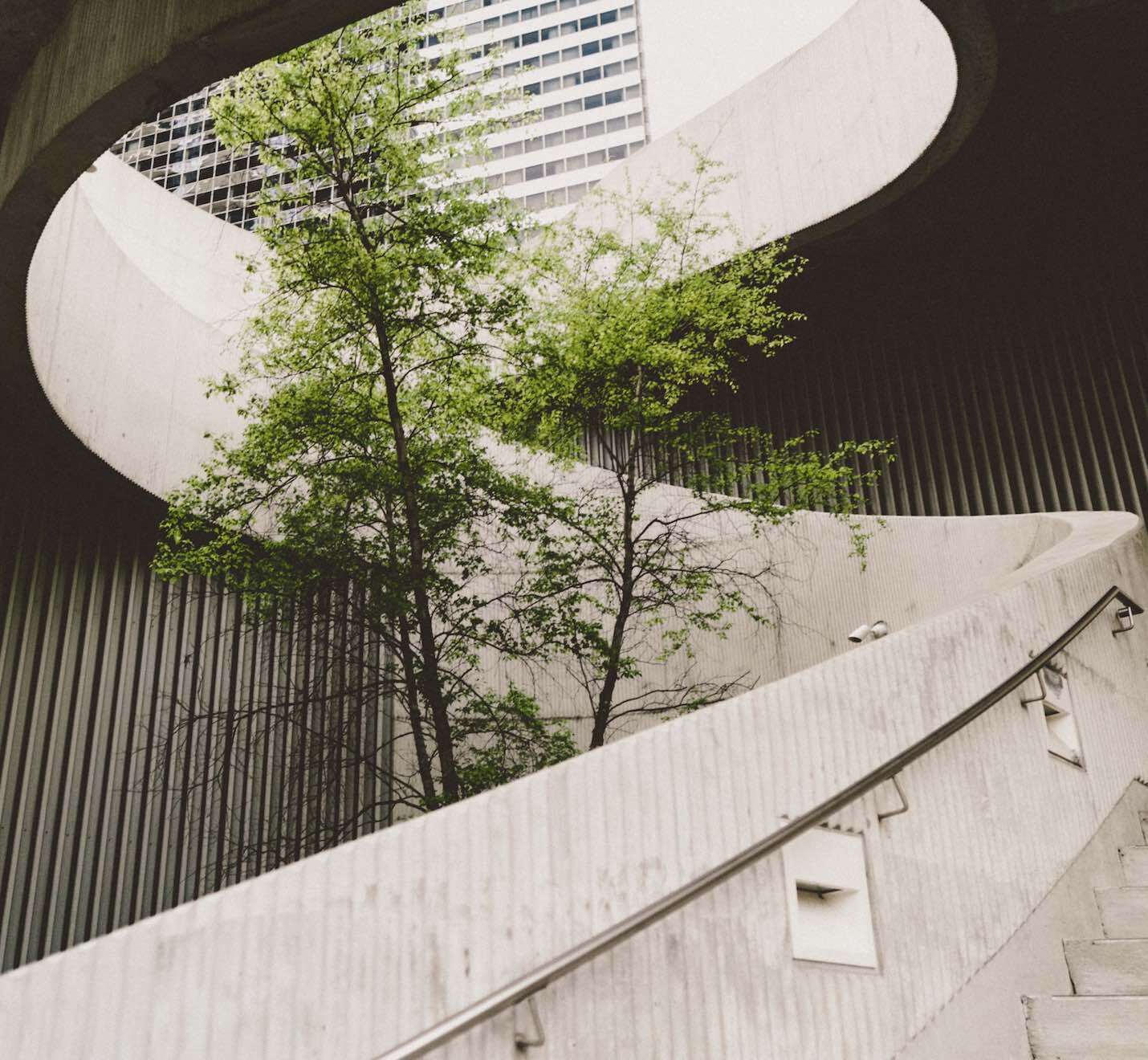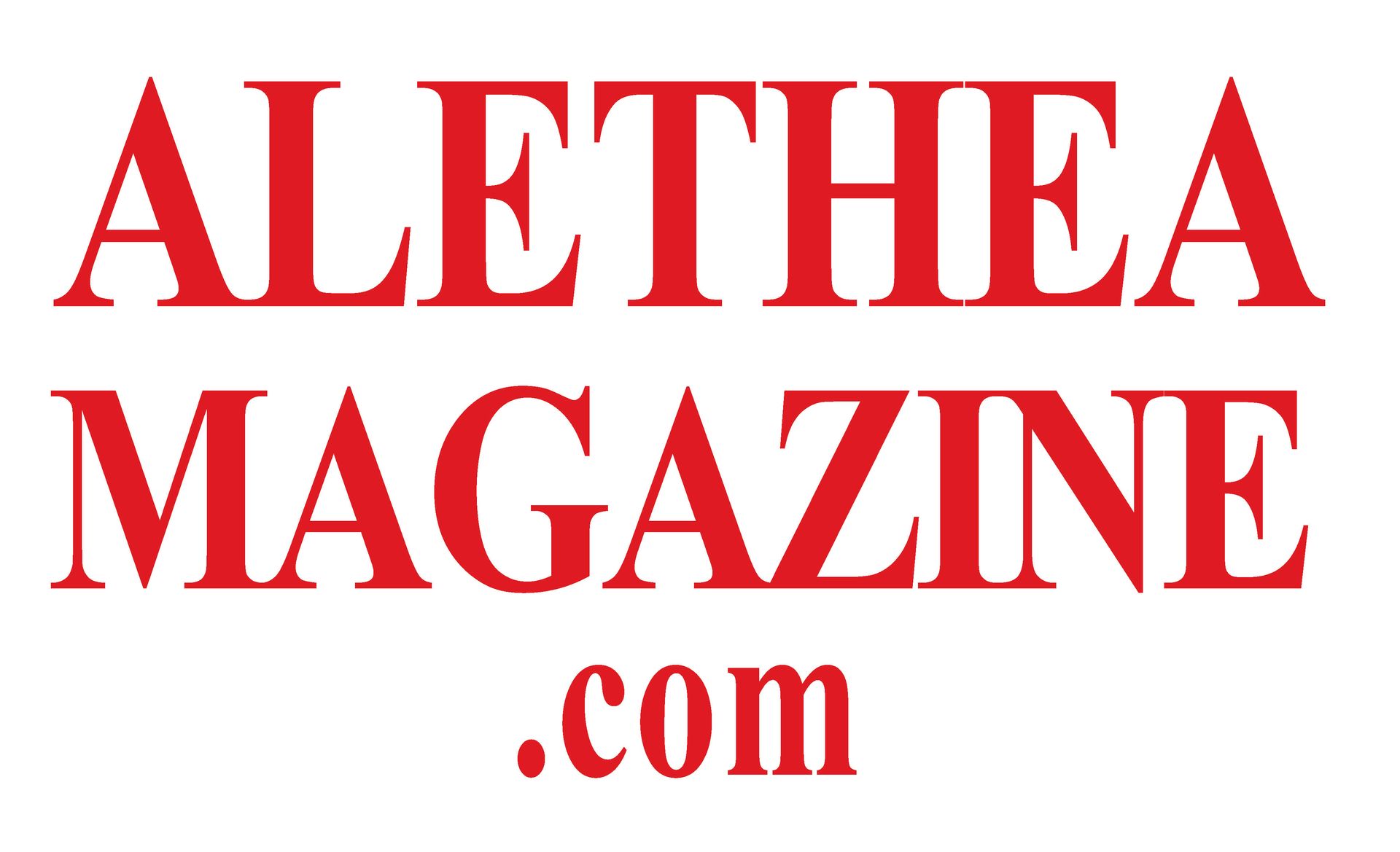Business - 12. May 2022
Sustainability or circularity?
The Center for Circular Economy at RWTH Aachen University opens its doors
An interview with Managing Director Dr.-Ing. Mohammad Chehadé
The interview was conducted in german - german version below

Companies, designers even influencers - all refer to sustainability. Sustainability is the key concept for successful market establishment. But just as important as sustainability is circularity. Circularity even replaces previous sustainability strategies. This is the thesis of Mohammad Chehadé. So get to know the newly formed Center for Circular Economy at RWTH Aachen University.
In the first episode, Alethea & Art Magazine meets Mohammad Chehadé, the Executive Director since July 2021. The Center for Circular Economy was decided by RWTH Aachen University in 2020 and has started its work very recently - benefiting from research and teaching at 26 institutions, 9 faculties and central facilities.
How do you carry an enormous body of knowledge on circularity to decision-makers in politics and business, where it is then implemented?
Circularity on everyone's lips - very visible at the European level - through the European Circular Action Plan, the European Green Deal since 2019 - the New European Bauhaus and also in the coalition agreement of this year circularity is set.

Managing Director of the Center for Circular Economy at RWTH Aachen University, Dr.-Ing. Mohammad Chehadé
©Center for Circular Economy
Alethea & Art Magazine: How did the decision come about to found the Center for Circular Economy at RWTH Aachen University?
Mohammad Chehadé: Circular economy is a very broad topic that covers all social and economic areas, from raw materials, design and production to the use of products. The goal of circular economy is to preserve the value of products and sub-products, even the material and the application, as much as possible by rethinking, reducing, reusing, repair, remanufacture, recovery of material, and even secondary consumption.
I refer to the 9 R strategies: Refuse, Rethink, Reduce, Reuse, Repair, Refurbish, Remanufacture, Repurpose, Recycle and Recover.
I say that the strategy of circularity replaces the previous strategy of sustainability. At our university, the principle of circularity has been taught for decades. In view of the global challenges, it was necessary to unite synergies in the various university competences under one roof - at RWTH Aachen University we have more than 280 university institutes, almost every one of which deals with a circularity topic.
Alethea & Art Magazine: Is it a research project or an institute? What is the concrete composition of your centre?
Mohammad Chehadé: It is a cross-faculty institute. We want to be active in teaching, research and society, and there will be topics and events that link the different faculties.
The Center for Circular Economy is made up of 9 faculties, each of which covers a specific part. But there is also a staff unit for sustainability at RWTH Aachen University that reviews how to bring sustainability to the university - this unit will also be involved.
Alethea & Art Magazine: Does this make you the academic pioneers in Germany?
Mohammad Chehadé: There are other initiatives in Germany like Circular Valley, Circular Value Creation at TH-Köln, Prosperkolleg, but our focus is different. We are there to connect people and not to create competition.

Alethea & Art Magazine: How will you take your knowledge into the economy, or where it is needed?
Mohammad Chehadé: Many of our institutes already work directly with industry or have direct links with society. We now have to do a lot of groundwork and position ourselves well and high for the topic. I am now concerned with visibility of the issue and I want to tell the
faculties within the university that we as a centre represent their interests. And I want to communicate this message externally as well.
For example, in October 2021 we invited the city of Aachen on the Circular Cities Declaration (circularcitiesdeclaration.eu ed.). In addition, we also helped with the application for the 100 Climate-neutral Cities by 2030; this was already approved last week.
We also already have contacts with the European Economy and Digitalisation Departments and the Climate and Environment Department. It's about initiating projects that are meaningful, cross-cutting, positive for the city, the environment and the world.
We are also in contact with the DBU, Deutsche Bundesstiftung Umwelt. We are not trying to find money for our projects, but to find and present meaningful projects, to do studies, and so on.
Our centre should be a tower of light, an enabler for transformation, change in research, teaching and society.
Alethea & Art Magazine: Is there a timetable? What kind of team do you have?
Mohammad Chehadé: The university decided on the strategic initiative in December 2020 and is funding it for 3 years. I have been the executive director since July 2021.
I work with a team of 4 students - but the 26 active institutes and the 9 faculties are actively involved in the centre and so we can talk about probably 30 staff at the centre.
Alethea & Art Magazine: What is the attitude of the federal government towards this?
Mohammad Chehadé: At the European level, circularity plays a very big role - so there is the European Circular Action Plan - the New European Bauhaus and also the coalition agreement this year, which explicitly mentioned circular economy and sustainability.
In the Federal Ministry of Education and Research, there are currently many calls for proposals in this area. We are also in contact with the Ministry of Economics, Innovation and Digitalisation of North Rhine-Westphalia. They also want to make the topic visible and are also exchanging ideas with us.

Mayor of the city of Aachen, Ms Keupen with the signed declaration
©Center for Circular Economy
Alethea & Art Magazine: Is there a schedule? What kind of team do you have?
Mohammad Chehadé: The university decided on the strategic initiative in December 2020 and is funding it for 3 years. I have been the executive director since July 2021.
I work with a team of 4 students - but the 26 active institutes and the 9 faculties are actively involved in the centre and so we can talk about probably 30 staff at the centre.
Alethea & Art Magazine: What is the attitude of the federal government towards this?
Mohammad Chehadé: At the European level, circularity plays a very big role - so there is the European Circular Action Plan - the New European Bauhaus and also the coalition agreement this year, which explicitly mentioned circular economy and sustainability.
In the Federal Ministry of Education and Research, there are currently many calls for proposals in this area. We are also in contact with the Ministry of Economics, Innovation and Digitalisation of North Rhine-Westphalia. They also want to make the topic visible and are also exchanging ideas with us.
Alethea & Art Magazine: Was the topic of circularity new to you yourself - how did you come to your task?
Mohammad Chehadé: I studied mechanical engineering in Aachen, specialising in production and did my doctorate.
I was active for 3 years with the project sponsor EIT Health, european institute of innovation and technology Health, and since July 2021 I have been allowed to set up the centre as Managing Director. My goal is that we will soon be able to initiate projects and also hire more staff.
I already learned about circularity as a student. Now I have lots of cross-thematic projects - so I always have to research and learn. There is no one person who is an expert in all aspects of the circular economy, the hollistic approach, bringing people together - that will take time.
Alethea & Art Magazine: Mr Chehadé, thank you for the interview.
The interview was conducted by C. Mauer.
Learn more:
Centre for Circular Economy
RWTH Aachen University
Intzestrasse 3, 52056 Aachen, Germany.

©Center for Circular Economy
German version
12 May 2022
Business - 12. May 2022
Nachhaltigkeit oder Zirkularität
Das Center for Circular Economy an der RWTH Aachen University öffnet seine Türen
Ein Interview mit Geschäftsführer Dr.-Ing. Mohammad Chehadé
Unternehmen, Designer sogar Influencer - alle beziehen sich auf Nachhaltigkeit. Nachhaltigkeit ist der Schlüsselbegriff für eine erfolgreiche Marktetablierung. Aber genau so wichtig wie Nachhaltigkeit ist Zirkularität. Zirkularität ersetzt sogar die bisherigen Nachhaltigkeitsstrategien. Diese These stellt Mohammad Chehadé auf. Lernen Sie daher das neugebildete Center for Circular Economy an der RWTH Aachen University kennen.
In der ersten Folge trifft Alethea & Art Magazine Mohammad Chehadé, den Geschäftsführer seit Juli 2021. Das Center for Circular Economy wurde 2020 von der RWTH Aachen beschlossen und hat ganz frisch seine Arbeit aufgenommen - dabei profitiert es von der Forschung und Lehre an 26 Institutionen, 9 Fakultäten und zentrale Einrichtungen.
Wie trägt man einen enormen Wissensschatz an Zirkularität an die Entscheidungsträger in Politik und Wirtschaft, wo er dann umgesetzt wird?
Zirkularität in aller Munde - sehr sichtbar auf der europäischen Ebene - durch den European Circular Action Plan, den European Green Deal seit 2019 - das New European Bauhaus und auch im Koalitionsvertrag von diesem Jahr ist Zirkularität festgesetzt.
Zum Interview:

Alethea & Art Magazine: Wie kam es zur Entscheidung das Center for Circular Economy an der RWTH Aachen University zu gründen?
Mohammad Chehadé: Kreislaufwirtschaft ist ein sehr breites Thema, das alle gesellschaftlichen und wirtschaftlichen Bereichen abdeckt, von Rohstoffen, Design, Produktion bis zur Nutzung der Produkte. Das Ziel von Kreislaufwirtschaft ist die grösstmögliche Werterhaltung von Produkten und Teilprodukten, sogar des Materials und der Anwendung durch Umdenken, Reduzierung, Weiterverwendung,
Reparatur, Aufarbeitung, Rückgewinnung von Material, und sogar sekundärer Verbrauch.
Ich verweise auf die 9 R Strategien: Refuse, Rethink, Reduce, Reuse, Repair, Refurbish, Remanufacture, Repurpose, Recycle und Recover.
Ich sage, dass die Strategie der Zirkularität die bisherige Strategie der Nachhaltigkeit ersetzt. An unserer Universität wird das Prinzip der Zirkularität seit Jahrzehnten gelehrt. Angesichts der globalen Herausforderungen war es geboten, Synergien in den unterschiedlichen Uni Kompetenzen unter einem Dach zu vereinen - an der RWTH Aachen haben wir mehr als 280 Uni Institute, von denen fast jede ein Zirkularitäts Thema bearbeitet.
Alethea & Art Magazine: Handelt es sich um ein Forschungsprojekt oder ein Institut? Wie setzt sich Ihr Center konkret zusammen?
Mohammad Chehadé: Es ist ein fakultätsübergreifendes Institut. Wir wollen aktiv in der Lehre, Forschung und Gesellschaft sein und es wird Themen und Veranstaltungen geben, die die verschiedene Fakultäten vernetzten.
Das Center for Circular Economy setzt sich aus 9 Fakultäten zusammen, die jede einen bestimmten Teil abdeckt. Es gibt an der RWTH Aachen aber auch eine Stabsstelle für Nachhaltigkeit, die überprüft, wie man Nachhaltigkeit an die Uni bringt - diese Stelle wird auch beteiligt.
Alethea & Art Magazine: Sind Sie damit die akademischen Vorreiter in Deutschland?
Mohammad Chehadé: Es gibt andere Initiativen in Deutschland wie Circular Valley, Zirkuläre Wertschöpfung an TH-Köln, Prosperkolleg, aber unser Fokus ist Anders. Wir sind dafür da, die Leute zu vernetzen und nicht um Konkurrenz zu schaffen.
Alethea & Art Magazine: Wie werden Sie Ihr Wissen in die Wirtschaft, oder dort wo es gebraucht wird, tragen?
Mohammad Chehadé: Viele unserer Institute arbeiten bereits direkt mit der Industrie oder haben direkte Verbindungen zur Gesellschaft.
Wir müssen jetzt viel Vorarbeit machen und uns gut und hoch für das Thema positionieren. Mir geht es jetzt um Sichtbarkeit des Thema und ich will den unterschiedlichen Fakultäten innerhalb der Uni mitteilen, dass wir als Center ihr Interesse vertreten. Und ich will diese auch extern diese Botschaft vermitteln.
Zum Beispiel haben wir die Stadt Aachen im Oktober 2021 zur Circular Cities Declaration (circularcitiesdeclaration.eu Anmk.d.Red.) unterstützt. Zusätzlich habe wir bei der Antragstellung der 100 Climate-neutral Cities by 2030 auch geholfen; das wurde schon letzte Woche genehmigt.
Wir haben auch bereits Kontakte zu den Abteilungen Wirtschaft und Digitalisierung in Europa und zum Dezernat Klima und Umwelt. Es geht darum, Projekte zu einzuleiten, die sinnvoll, übergreifend, positiv für die Stadt, die Umwelt und die Welt sind. Wir sind auch im Kontakt mit der DBU, Deutsche Bundesstiftung Umwelt. Wir versuchen nicht, Geld für unsere Projekte zu finden, sondern um sinnvolle Projekte zu finden und vorzustellen, Studien zu erstellen usw.
Unser Center soll ein Lichtturm sein, ein Enabler für Transformation, Wandel in Forschung, Lehre und Gesellschaft sein.
Alethea & Art Magazine: Gibt es einen Zeitplan? Was für ein Team haben Sie?
Mohammad Chehadé: Die Universität hat die strategische Initiative im Dezember 2020 entschieden und finanziert sie für 3 Jahre. Ich bin seit Juli 2021 der Geschäftsführer.
Ich arbeite mit einem Team aus 4 Studenten zusammen - aber die 26 aktiven Institute und die 9 Fakultäten sind aktiv am Center beteiligt und so kann man von wohl 30 Mitarbeitern am Center sprechen.
Alethea & Art Magazine: Wie ist die Haltung der Bundesregierung hierzu?
Mohammad Chehadé: Auf europäischer Ebene spielt Zirkularität eine sehr grosse Rolle - so gibt es den European Circular Action Plan - das New European Bauhaus und auch der Koalitionsvertrag dieses Jahr, in dem Kreislaufwirtschaft und Nachhaltigkeit ausdrücklich erwähnt wurde.
Im Bundesministerium für Bildung und Forschung gibt es derzeit viele Ausschreibungen in diesem Bereich. Wir sind auch mit dem Ministerium für Wirtschaft, Innovation und Digitalisierung des Landes Nordrhein Westfalen in Kontakt. Auch sie wollen das Thema sichtbar machen und tauschen sich mit uns auch.
Alethea & Art Magazine: War Ihnen selbst das Thema Zirkularität neu - wie sind Sie zu Ihrer Aufgabe gekommen?
Mohammad Chehadé:
Ich habe in Aachen Maschinenbau, Fachrichtung Produktion studiert und promoviert.
Ich war 3 Jahr aktiv mit dem Projektträger EIT Health, european institute of innovation and technology Health und seit Juli 2021 darf ich das Center als Geschäftsführer aufbauen. Mein Ziel ist, dass wir bald Projekte initieren dürfen und auch bald mehr Mitarbeiter einstellen können.
Zirkularität lernte ich als Student bereits kennen. Jetzt habe ich lauter themenübergreifende Projekte - so dass ich immer recherchieren und dazu lernen muss. Es gibt keine Person, die Experte in allen Bereichen der Kreislaufwirtschaft ist, der hollistische Approach, die Menschen zusammen bringen - das wird dauern.
Alethea & Art Magazine: Herr Chehadé, ich danke Ihnen für das Interview.
Das interview wurde von C. Mauer geführt.
Mehr erfahren:
Center for Circular Economy
RWTH Aachen University
Intzestrasse 3, 52056 Aachen, Germany
ALETHEA & ART MAGAZINE - You might be interested?
12 May 2022

Art / Personalities - 8 Mai 2022
Dr Tayfun Belgin, the museum director of the Osthaus Hagen talked about his plans for the Osthaus Hagen on the occasion of the opening of Von Fernen umgeben, the new series of paintings by Dieter Nuhr. The museum has been in the media lately because of star artists like Sylvester Stallone, Bryan Adams and now Dieter Nuhr - but Dr Belgin is also known for his new discoveries. And - what is actually the key to success for a museum director?
©Osthaus Hagen

Art Calendar / Art - 14 April 2022
Stephan Kaluza "Fiction / Non-Fiction" - Interview - Naturalness versus Artificiality -
8 to 30 April 2022 -
at Geuer & Geuer, Düsseldorf
"Transit II" is meant to represent a transit situation of threatened nature. The artist succeeds in presenting his idyllic paintings entirely without illustrative elements as a warning. Philosophy of nature is central to the artist's work. Thus, he has launched his latest book - Stephan Kaluza - "Die Dritte Natur"
©Stephan Kaluza

Fashion / Business - 1 April 2022 by C. Mauer
Sheltersuit - charity, real fashion circularity, life stories and a also new fashion initiative
Sheltersuit Foundation is a non-profit organization founded in 2014 by Bas Timmer to develop products that can alleviate the symptoms of homeless people. The Sheltersuit and the Shelterbag were created. Alethea & Art Magazine received an interview from the Sheltersuit team about the idea of the foundation, the business model and also about the new fashion line.
©Sheltersuit


